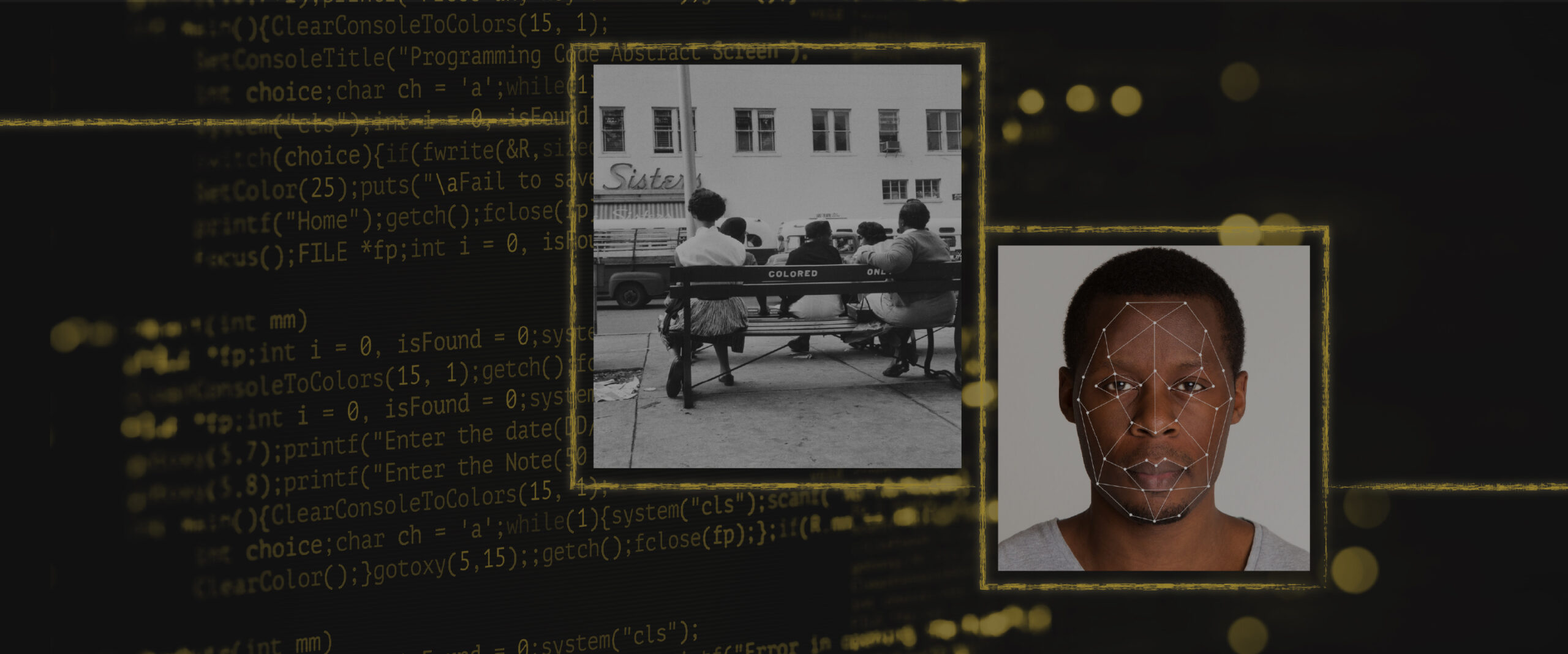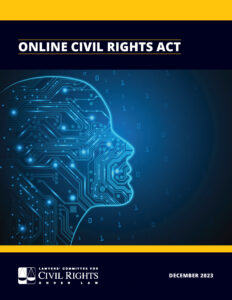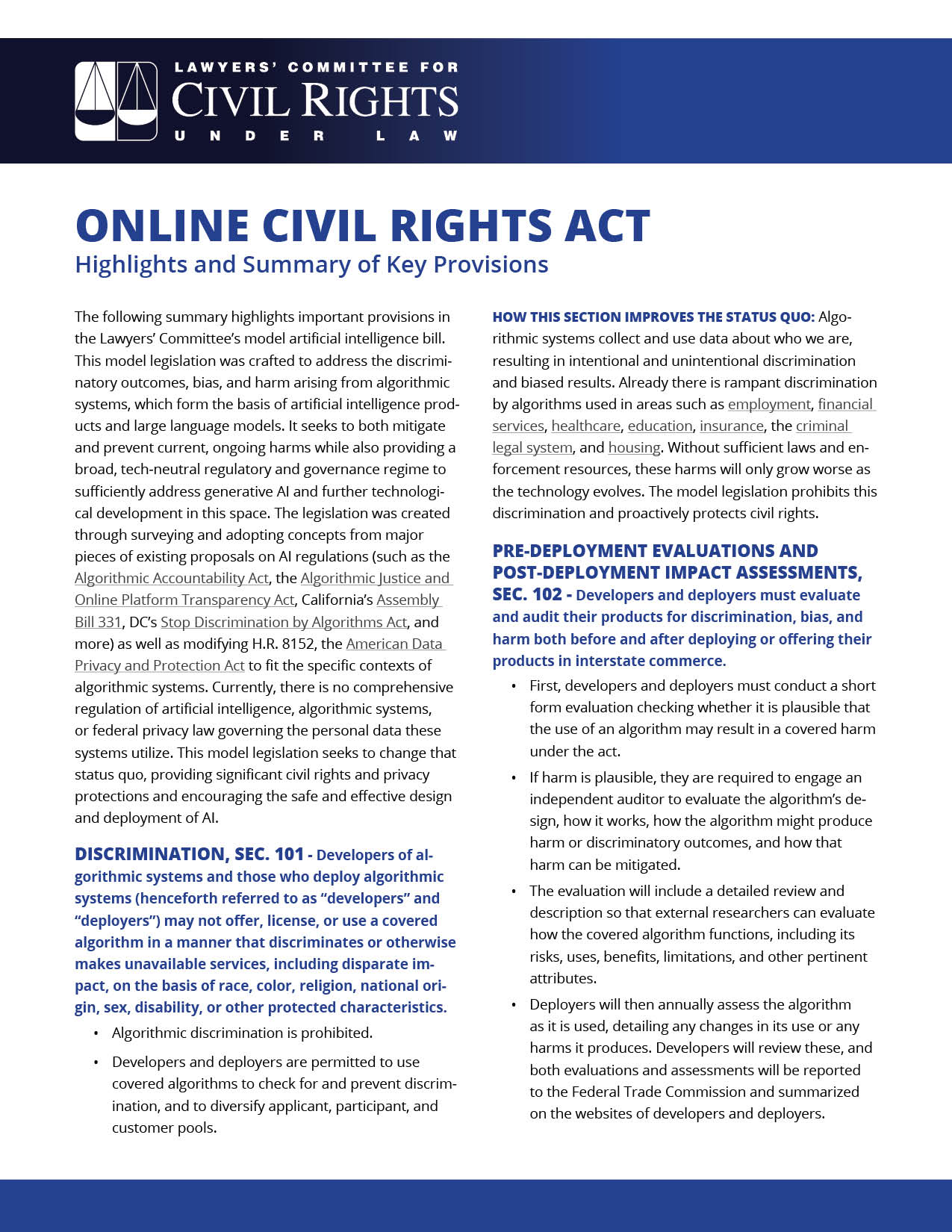
Online Civil Rights Act
The tools of the future are being used to lock us into the mistakes of the past.
Artificial Intelligence products and algorithmic tools used in facial recognition, tenant screening, hiring algorithms, and credit scoring use algorithmic systems to discriminate, or disproportionately harm Black communities and other communities of color. Because AI and other algorithmic technologies are built using data that reflects generations of redlining and segregation, they often replicate and reinforce generations of discrimination.
But, like any other product, AI tools should not be made available if they are not safe.
The Lawyers’ Committee for Civil Rights Under Law is committed to creating solutions that will ensure that emerging technologies are justice- and equity-centered. We have written the “Online Civil Rights Act,” calling on Congress to protect civil rights and promote responsible development and use of Artificial Intelligence.
1
Including a specific anti-discrimination provision to prohibit algorithmic discrimination.
2
Requiring that algorithmic tools are evaluated and assessed, before and after deployment, for discrimination and bias.
3
Requiring developers and deployers of AI to have a duty of care requiring that the products they offer are safe and effective.
4
Including transparency and explainability requirements so that consumers know when, how, and why AI is being used.
5
Including data protection requirements, so that AI developers and deployers are required to collect and use only as much personal data as is reasonably necessary to provide the services that consumers expect, and to safeguard that data.
6
Establishing robust oversight and including a private right of action, which allows individuals to assert their rights in court, and oversight from states and federal agencies.
“The Lawyers’ Committee drafted this legislation to give Congress a roadmap for how to protect civil rights and equal opportunity as new artificial intelligence technologies develop. We want to require companies to have adequate transparency to explain how their products work and to make sure they’re safe before they’re deployed in the general public.” David Brody–Managing Attorney, Digital Justice Initiative, Lawyers’ Committee for Civil Rights
The “Online Civil Rights Act” seeks to both mitigate and prevent current, ongoing harms while also providing a broad, tech-neutral regulatory and governance regime to sufficiently address generative AI and further technological development in this space. The legislation was created through surveying and adopting concepts from major pieces of existing proposals on AI regulations (such as the Algorithmic Accountability Act, the Algorithmic Justice and Online Platform Transparency Act, California’s Assembly Bill 331, DC’s Stop Discrimination by Algorithms Act, and more) as well as modifying H.R. 8152, the American Data Privacy and Protection Act to fit the specific contexts of algorithmic systems.
Watch
Lawyers’ Committee’s AI Bill


